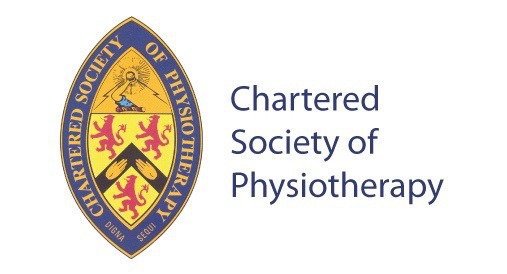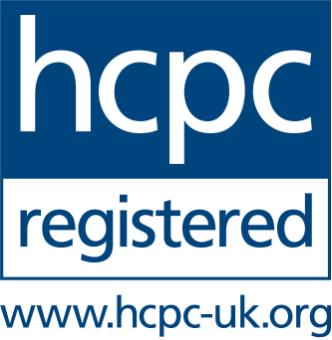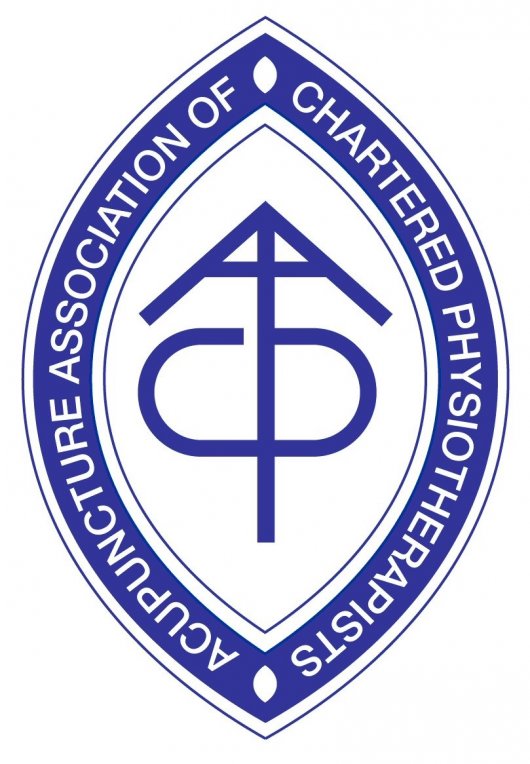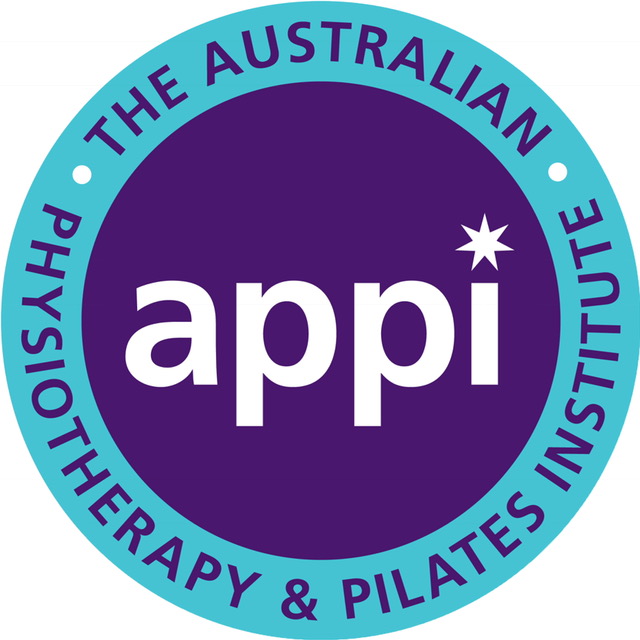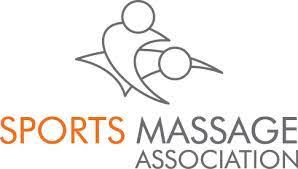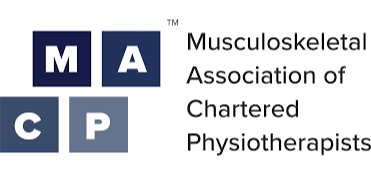Shockwave Therapy - Can it Help Me?
Shockwave Therapy - Can it Help Me?
Read on to learn more about shockwave and how it could help you.

What is Shockwave Therapy?
Shockwave treatment is beneficial for chronic symptoms (usually tendon
issues) which have persisted for at least 3-6 months and have not responded to conservative treatments such as standard Physiotherapy.
Shockwave therapy is a non-invasive treatment which works by delivering
mechanical energy to the targeted area (e.g. tendon, muscle or bone) in order to increase blood flow, reduce pain and stimulate nature healing and cell
regenerative.
Shockwave is utilised alongside a comprehensive rehabilitation programme
which your Physiotherapist will run through with you in the sessions.
Shockwave is most effective when combined for a full range of rehabilitation, which will be agreed with you by your treating Physiotherapist.
Could Shockwave Help Me?
If you have chronic tendon pain, then you are likely to benefit from Shockwave
Therapy.
The evidence suggests Shockwave is beneficial for tendon pain such as:
Plantar Fasciopathy
Achilles Tendinopathy
Patella Tendinopathy
Hip flexor Tendinopathy
Gluteal Tendinopathy
Rotator cuff pain- Tendinopathy
Tennis elbow (Lateral Epicondylgia)
Golfer’s Elbow (Medial Epicondylgia)
Shockwave can also be used to treat shin splints (MTSS) and Stress fractures. There is a smaller body of evidence of condtions such as Iliotibial abnd pain.
If you are unsure if shockwave is appropriate for you, please get in contact with our expert Physio team. We are currently the only clinic to offer shockwave in Rugby. With us and we can provide you with advice and guidance. An assessment priorto the treatment is essential to ensure that this is the right treatment for you.
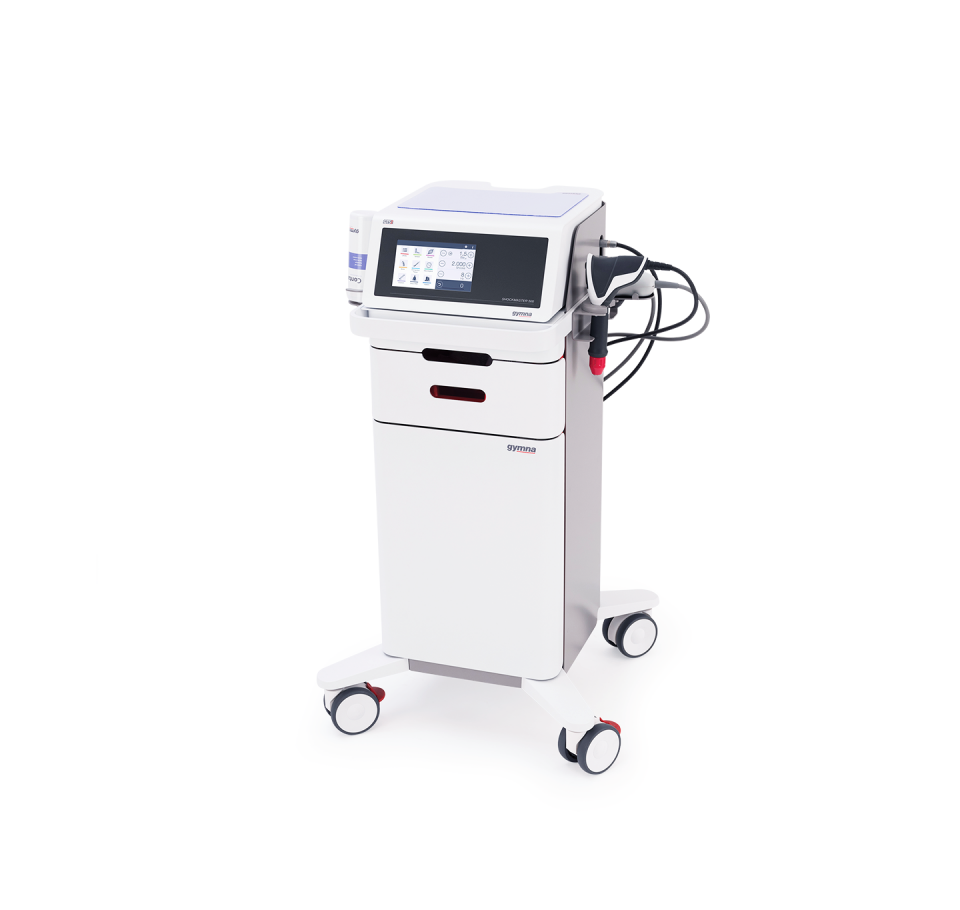
How Does it Work?
When painful conditions (such as tendon problems) are ongoing from longer
than 12 weeks the body’s nature healing process can become ‘stagnant’.
Shockwave therapy stimulates blood flow and oxygen to the local area and
encourages the body to restart the healing process.
How Many Sessions Do I Need?
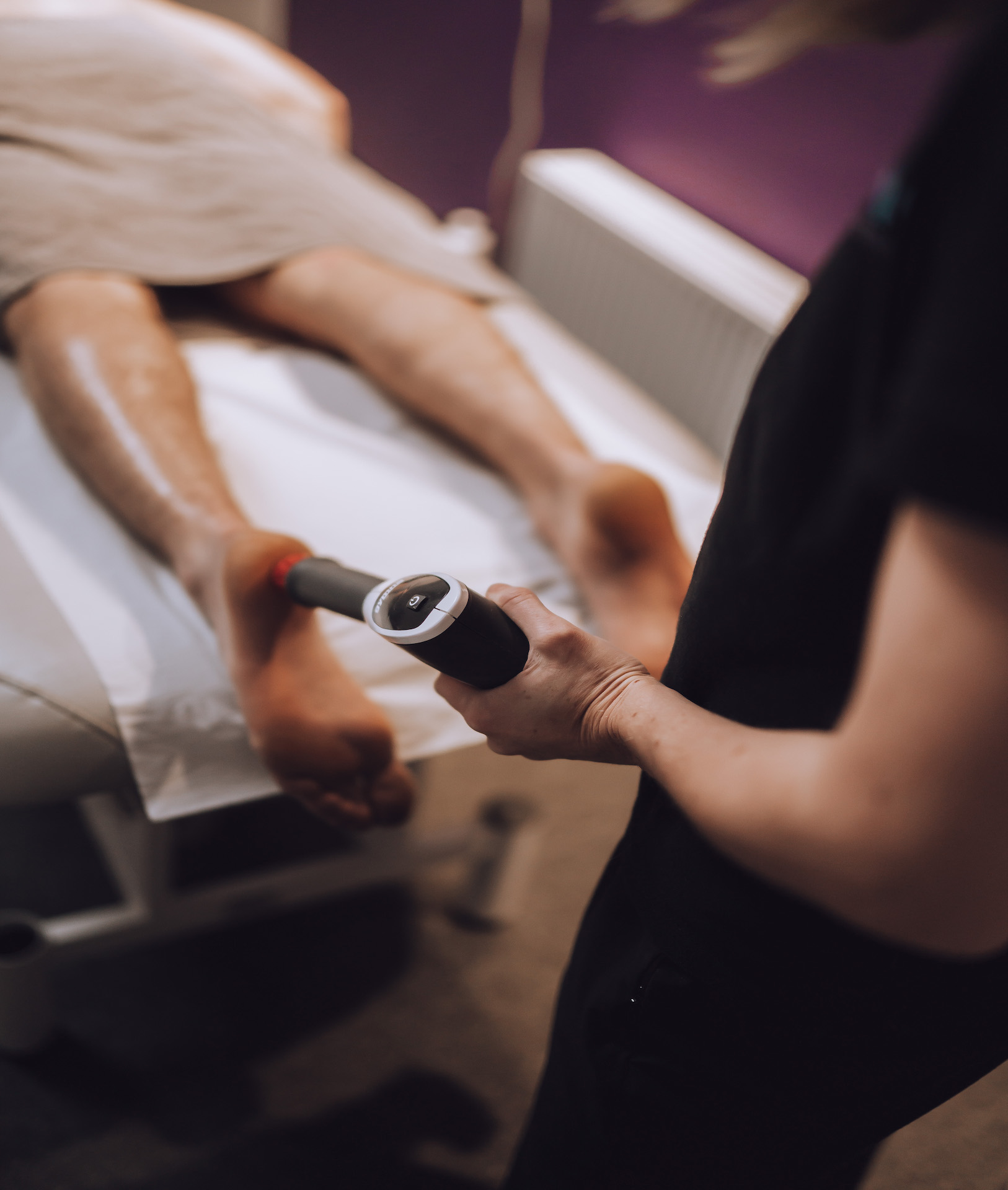
The research suggests 1 treatment session for 3 consecutive weeks. Treatment
should ideally be 7 days apart to ensure the treatment is as effective as
possible. 3 further sessions can be offered if symptoms have improved but not
resolved. Research suggests that most people require between 3-6 sessions.
Are There Any Side Effects?
Shockwave therapy is non-invasive and therefore has very minimal side
effects. The treatment can be uncomfortable at times, however, each
treatment burst lasts only a few minutes at a time and most people describe
this as very bearable.
What is the Success Rate?
The success of Shockwave has been published in many research studies and it has been concluded that Shockwave is an excellent treatment option for chronic tendon pains, as long as this is combined with appropriate exercises to maintain improvements and strengthen local muscles appropriately. Your physiotherapist will help you with a guided, specific exercise programme to provide you with the most optimal treatment package.
Is There Anything I Should Avoid During my Treatment?
It is advisable to NOT take anti-inflammatory medication following shockwave treatment. As well as it is NOT advisable to use ICE on the treated area following the shockwave treatment. This is because the shockwave therapy will encourage a naturally positive healing process (including natural inflammation) so we don’t want an anti-inflammatory tablet or ice to counteract this effect. It may reduce the healing effect of the shockwave treatment.
We offer Shockwave therapy and many other services including Physiotherapy, sports massage and acupcunture in Rugby.If you have any questions or want to find out more please don't hesitate to get in touch.
contact us. You can contact us by calling 01788 229956, or emailing usat admin@lmcphysio.co.uk. or click the link below .
